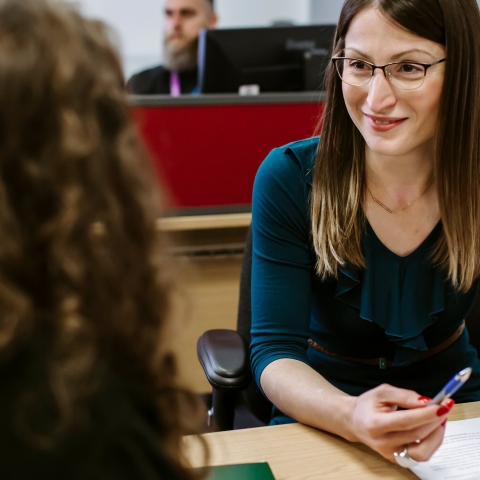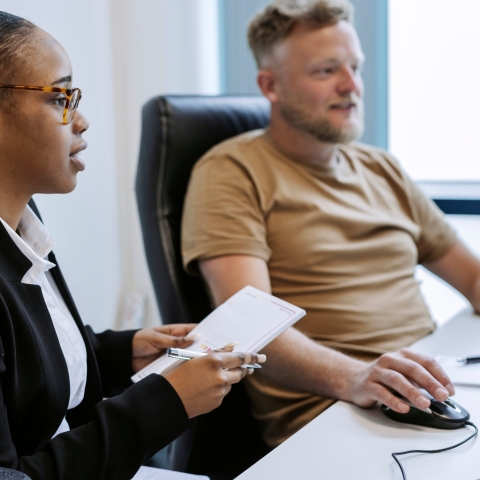
Sidebar navigation

Gaining experience
Accounting, Finance and Economics
Getting relevant experience is essential since many employers recruit through internships, placement programmes, or work experience programmes, and overall boost your employment prospects by helping to build a network of contacts. Most of your graduate competition will have degree-related work experience.
Types of opportunities
Below are some examples of the different types of opportunities to gain experience while you study.
Placements will give you a long-term look at an organisation, and help you to build contacts and experience.
On some degrees, work placements are part of the programme, whilst on others you can choose to complete a placement as one of your modules. Should you choose to undertake either your first point of contact is your placement team.
Enhance your prospects with hands-on experience through volunteering. Whether you're uncertain about your career path or aiming for professional success, volunteering offers a chance to explore diverse roles.
You can also get involved in relevant university projects through the different groups and societies via the Student Union. This is a good way of demonstrating your motivation and interest in this area of work.
Internships are usually for a fixed period and give you more hands-on experience. Many employers will treat interns in the same way as full-time employees, so when future job roles ask for 'at least one year's experience' you can include an internship in this type of experience.
Internships are offered by many financial and economic services firms, including:
Unlock tailored work experiences with diversity-focused programs from major companies and financial firms. These initiatives cater to diverse backgrounds, empowering individuals who've faced challenges due to their identity. Designed for Black students, women, and those with disabilities, these programs enhance inclusivity, upskilling, and sector-specific exposure, bridging opportunity gaps. Popular schemes include:
Larger organisations offer taster or experience weeks providing hands-on alternatives to internships. These include:
- BDO’s insight days
- Discover EY insight programmes
- PwC’s Talent Academy
- Deloitte’s ‘Spring into Deloitte’ event
- Skills Sessions run by the likes of KPMG
Some insight programmes are targeted specifically at first-year students or second-year students for those individuals taking a 4-year course.
There's a high chance that by attending these tasters, you'll increase your chances of securing an internship the following year as you'll have gained an insight into the company and potentially made contacts within the firm itself.
Where to find opportunities
The key to success is to prepare thoroughly, do your research and organise your experience in good time. Explore the various areas of your sector before you apply for work experience; knowing what you want to specialise in will help you focus your research and ensure you gain the relevant skills.
Work experience and internships section in Prospects contains links to relevant resources to help you find some work experience.

Consider speculative applications
When you approach an employer directly, you send them a speculative application. Speculative applications involve sending a CV and cover letter to an employer to ask if they can offer any work experience, even if the company is not currently advertising placements or internships.
Submitting a speculative application shows your interest in a specific company and your willingness to go above and beyond to develop your skills and understanding of the industry.
Tips for finding work experience
-
Try to have something that makes you stand out in your applications: join and get involved in relevant university groups or projects. This is a good way of demonstrating your motivation and interest in this area of work.
-
Tailor your project work towards themes that interest you.
-
Research employers/organisations carefully.
-
Keep up to date with developments in the accounting, finance and economics industry.
-
Speak to your tutor or other members of Faculty staff researching the areas that interest you, as students are sometimes recruited to work on research projects over the summer.
-
Start early! Get involved and volunteer during your first and second year to help boost your employability opportunities once you graduate.
Explore the Accounting, Finance and Economics Career Guide
Accounting, finance and economics

Getting started in the industry

Finding a job in the sector


